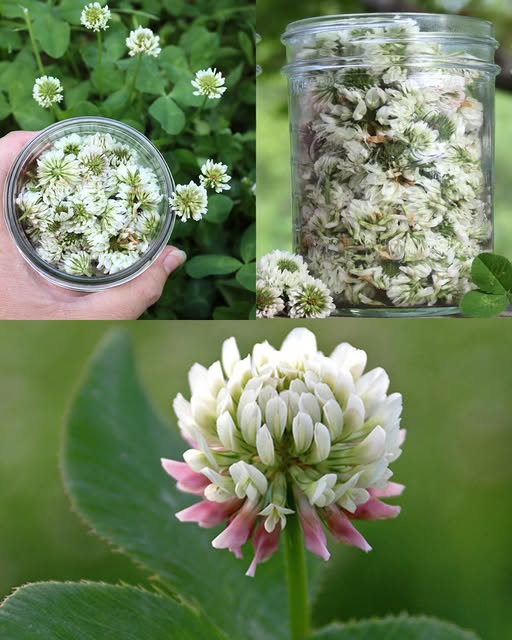Why You Should Care About White Clover
Have you ever walked past those small white flowers in your yard without a second thought? White clover isn’t just a weed – it’s packed with benefits for your skin, health, and even your garden. If you’re looking for natural ways to boost wellness or treat minor issues, this humble plant might surprise you.
What Makes White Clover Special
White clover (Trifolium repens) contains vitamins, minerals, and compounds like isoflavones that act like weak estrogens in the body. Traditionally, people have used its flowers and leaves in teas, salves, or eaten raw. It grows almost everywhere, making it an easy-to-find remedy.
Key Benefits of White Clover
1. Skin Soother: Reduces rashes, eczema, and insect bites when applied as a paste.
2. Respiratory Relief: Tea made from flowers helps clear coughs and congestion.
3. Hormone Balance: May ease menopause symptoms due to plant-based estrogens.
4. Blood Purifier: Supports liver function and detoxification when consumed regularly.
Powerful Combinations with White Clover
| Ingredient | Added Benefit |
|---|---|
| Honey | Boosts immunity + improves tea taste |
| Oatmeal | Creates calming face mask for irritated skin |
| Lemon | Enhances detox effects + adds vitamin C |
| Chamomile | Promotes better sleep in nighttime tea blends |
How to Make Basic White Clover Tea
- Pick 10-15 fresh flower heads (avoid areas sprayed with chemicals)
- Rinse with cool water
- Steep in hot (not boiling) water for 7 minutes
- Strain and drink warm, or let cool for skin compresses
Remember: Safety First
White clover is generally safe, but don’t eat it in large amounts. Pregnant women should avoid medicinal use due to estrogen-like effects. Always test a small skin area first. If you’re on blood thinners or have hormone-sensitive conditions, talk to your doctor before using it regularly.

